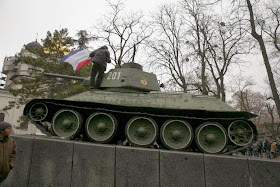by Benson Agoha | Internation Trade
The agreement, which still much be signed and ratified in each country, caps five years of difficult talks led by the United States.
* President Obama scores high on international trade and
co-operation as Americaneconomy surges.
Michael Froman, U.S. Trade Representative gave a short speech before taking questions. He said: "After five years of intensive negotiations, we have come to an agreement that will create jobs, drive sustainable growth, foster inclusive development, and promote innovation across the Asia Pacific Region."
The deal will create the world's largest free-trade area that encompasses 40% of the global economy and was achieved after a marathon five-day talks in Atlanta, Georgia, United States of America.
Yesterday's announcement of the conclusion of negotiation, after five years of intensive talking and exchange of ideas, represents a mile-stone for members of the Trans Pacific Partership (TPP).
Led by the USA, the 12 member partnership includes Australia, Brunei, Canada, Chile, Japan, Malaysia, Mexico, New Zealand, Peru, Singapore and Vietnam.
Like the EU, membership is still open to other countries that may desire to join the partnership in due course.
The agreement according to the TPP, will support jobs and ensure libralisation of trade between member states. It brings a high standard to bilateral co-operation between countries.
Reacting to the announcement, President Obama said: “This partnership levels the playing field for our farmers, ranchers, and manufacturers by eliminating more than 18,000 taxes that various countries put on our products,” adding “...It promotes a free and open Internet."
He said: "It strengthens our strategic relationships with our partners and allies in a region that will be vital to the 21st century. It’s an agreement that puts American workers first and will help middle-class families get ahead.”
The partnership draws a lot from the EU arrangement, but with added unique features. Still a lot still has to be worked out by the secretariate and member countries have to get the approval of their different governments.
Media reports say, despite the announcement, a major huddles remains getting it through the US Congress. But pulling it off alone represents a major policy score for President Obama, whose Iran deal was not enjoy this kind of applauds.
Off the 12 members countries, Canada has been the most vocal in terms of its satisfaction with the agreement, calling it a win win for Canada, having been among the founding members.
And as any keen observer would see, China and Russia are conspicously missing from the list. How this will rub off on them, especially China, was the subject of the first question, as you see from this video.
Other questions that were tackled include how the world will be affected by issues such as currency, and how it will affect poorer countries like Chile and New Zealand.
As for ratification, the agreement still must be signed and ratified by the respective countries--which could be a challenge in a number of countries, including getting through congress, but most countries are optimistic, they will see it through.
Watch the video:


















































































































































































No comments:
Post a Comment